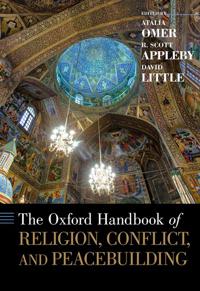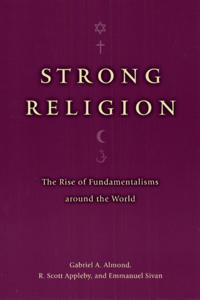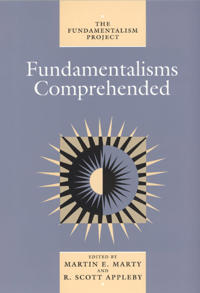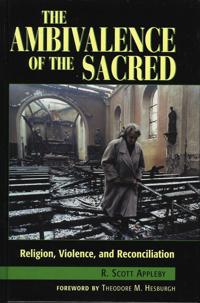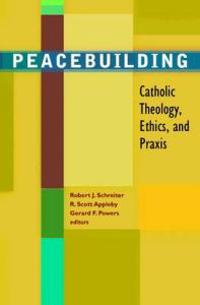The Oxford Handbook of Religion, Conflict, and Peacebuilding (Inbunden)
avAtalia Omer, R. Scott Appleby, David Little
ISBN: 9780199731640 - UTGIVEN: 2015-03The book provides a comprehensive and interdisciplinary account of the scholarship on religion, conflict, and peacebuilding. Extending the scope of inquiry beyond previous parameters, the volume engages deeply with the legacies of colonialism, missionary activism, secularism, orientalism, and libera[...]
Strong Religion (Häftad)
avGabriel A. Almond, R. Scott Appleby, Emmanuel Sivan
ISBN: 9780226014982 - UTGIVEN: 200306Since the September 11 terrorist attacks against the United States, religious fundamentalism has dominated public debate as never before. Policymakers, educators and the general public all want to know: Why do fundamentalist movements turn violent? Are fundamentalisms a global threat to human rights[...]
Fundamentalisms Comprehended (Häftad)
avR. Scott Appleby, Martin E. Marty
ISBN: 9780226508887 - UTGIVEN: 200405The authors test the theory that fundamentalisms in all religions share common characteristics. Several essays reconsider the project's original definition of fundamentalism as a reactive, absolutist, and comprehensive mode of anti-secular religious activism.[...]
The Ambivalence of the Sacred (Häftad)
avR. Scott Appleby
ISBN: 9780847685554 - UTGIVEN: 199911Terrorists and peacemakers may grow up in the same community and adhere to the same religious tradition. The killing carried out by one and the reconciliation fostered by the other indicate the range of dramatic and contradictory responses to human suffering by religious actors. Yet religion's abili[...]
Peacebuilding (Pocket)
avRobert J. (EDT) Schreiter, R. Scott (EDT) Appleby, Gerard F. (EDT) Powers
ISBN: 9781570758935 - UTGIVEN: 2010-10An international team of scholars address the theology and practice of peacebuilding. "Peacebuilding" refers to a range of topics, ranging from conflict prevention to post-conflict reconciliation. In this volume a strong cast of Catholic theologians, ethicists, and scholar-practitioners join to exa[...]

